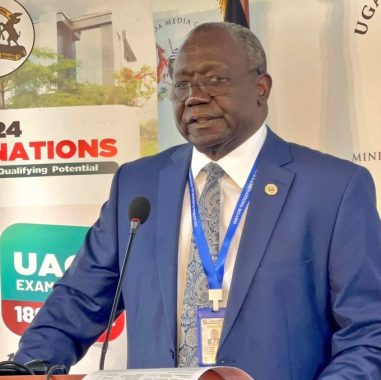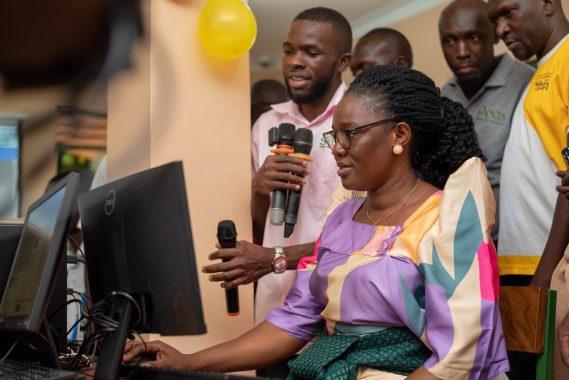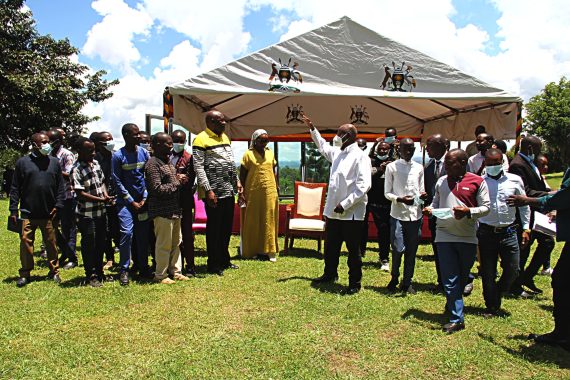The Uganda National Examinations Board (UNEB) has officially released the timetable for the 2024 national examinations.
The revelation was made by UNEB Executive Director, Dan Odongo.
For the first time, Uganda Certificate of Education (UCE) candidates will be assessed under the new lower secondary curriculum, marking a historic shift in the country’s educational framework.
“This is a significant moment. These exams will be the first under the new curriculum for the award of the UCE certificate.” Odongp told journalists
He revealed four distinct sets of exams this year, up from the usual three. Besides the Primary Leaving Examination (PLE) and the Uganda Advanced Certificate of Education (UACE), UCE candidates will sit for two separate sets of exams: one under the new curriculum and another referred to as the “transition examination.”
UNEB has introduced a one-off “transition examination” for students who sat for their UCE exams in 2023 but either failed or missed the examination due to various reasons. Odongo explained that this opportunity was created due to the differences between the old and new curricula.
“This is a one-time opportunity for those who may want to repeat the exam under the old curriculum,” said Odongo. “After this, the transition exam will be retired for good.”
According to UNEB’s detailed plan, the UCE examinations will commence on October 11, 2024, with a national candidate briefing.
Next, on November 4, 2024, PLE candidates will undergo their briefing before sitting for their exams. The season will wrap up with UACE, with candidates attending their briefing on November 8, 2024.
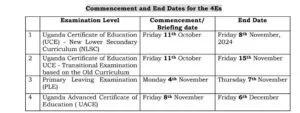
UNEB’s theme for the 2024 exams is, “Embracing Security and Holistic Assessment of Learners in a Dynamic Environment.”
Odongo said this theme ensures strict security measures, and puts a task on stakeholders to maintain the integrity of the examination process.
“We want to ensure that all candidates are assessed fairly and equally under similar conditions,” he stressed.
The new theme also aims to push for a “holistic assessment” of students, evaluating not just their academic knowledge but their practical skills and attitudes as well. This is in line with the global educational trend and is a key element of the new curriculum.
“We are moving beyond pen-and-paper exams to focus on the complete learner what they know, what they can do, and how they apply their knowledge in real life,” Odongo elaborated.
The number of students registered for the 2024 exams has surged, with a total of 1,320,400 candidates across all four examinations, a 7.8% increase compared to the previous year.
For the UCE exams alone, 379,620 candidates have registered, including 10,143 for the transition exam. This surge reflects growing access to education in Uganda and a rise in the number of girls taking part in national exams.
UNEB revealed that female candidates make up 51.1% of the total registration, compared to 48.9% for male candidates.
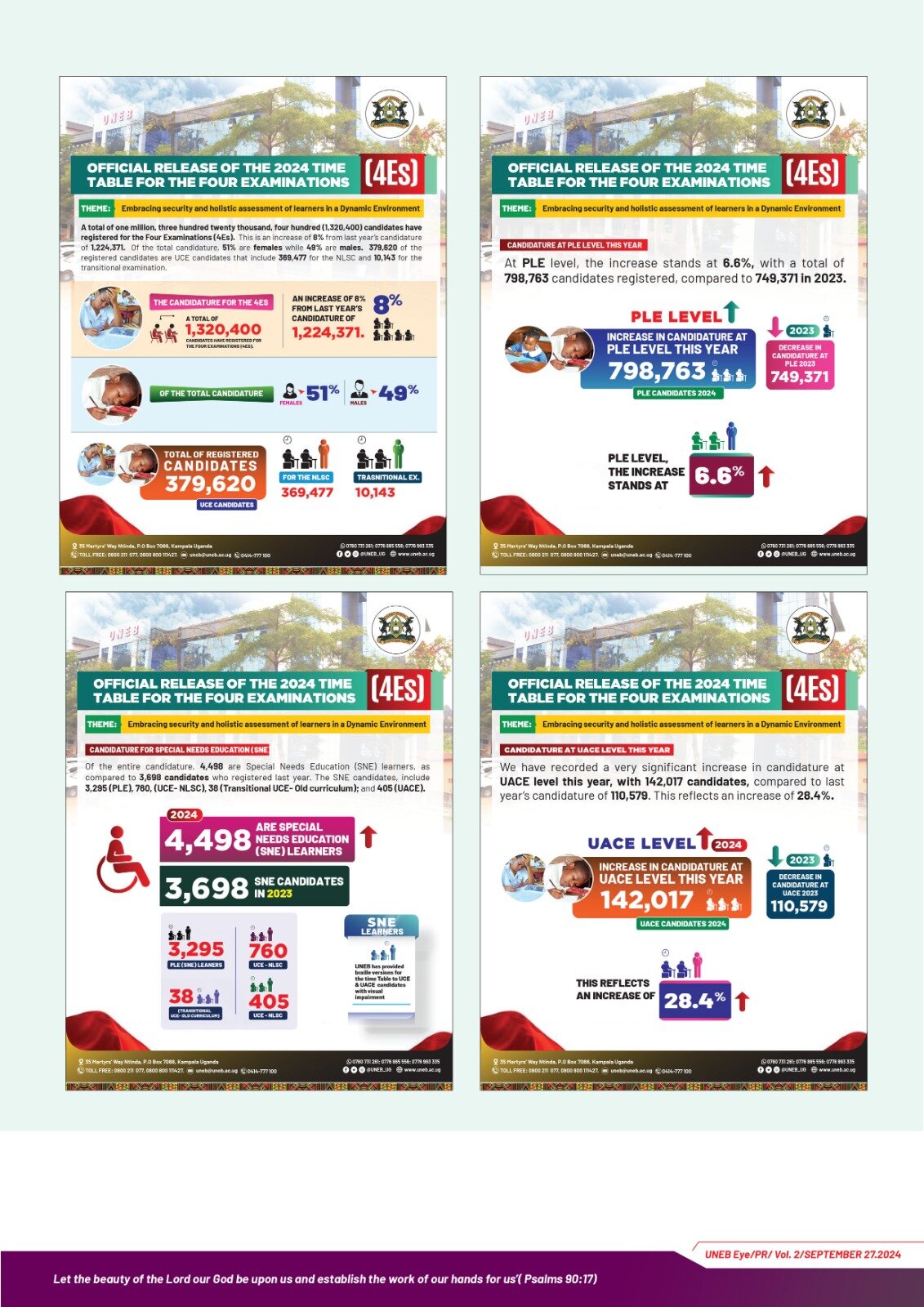
Odongo further explained that the 2024 examinations would introduce some notable firsts in the country’s exam history. For the first time, UNEB will conduct exams in Uganda Sign Language.
Additionally, Odongo revealed that listening and speaking skills will now be tested in Latin and Arabic, languages that have seen increased interest in Uganda’s schools.
“As we speak, our visiting examiners are already in the field, assessing these subjects,” Odongo stated,
In addition to these new subjects, UNEB will continue its assessment of practical subjects such as physical education and the long-standing foods and nutrition practicals.
“These practical exams have been successfully conducted in previous years, and we are maintaining them as part of our commitment to holistic education,” Odongo noted.




